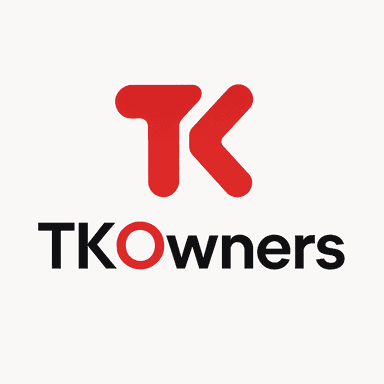Overview / Executive Summary Take a pile of discarded coffee sacks, silk linings, and decommissioned parachutes. Now turn that into $400 jackets that make people feel good about their style and their carbon footprint. That’s the business. The upcycled fashion market is exploding, driven by consumer guilt, climate reality, and the craving for pieces that actually stand out. Why now? Because no one needs another fast fashion hoodie, but everyone wants a story they can wear. Value Proposition This brand turns discarded stories into wearable statements. Unlike generic sustainable clothing lines, we don’t just slap “eco” on a tag and call it a day. Each piece is crafted from unique materials think WWII wool blankets, old Gucci shopping bags, airline seat fabric, firefighter gear and lined, stitched, or shaped into something that demands attention. Our value lies in: One-of-one craftsmanship: No mass production, no cookie-cutter designs.
Sustainability with actual substance: Upcycled means diverted landfill, not just recycled plastic labels.
Cultural cachet: These aren’t just clothes. They’re flex-worthy, story-loaded objects of desire.
Target Audience Core Buyer: Eco-Conscious Style Seekers Ages 22–40
Mostly Millennials and Gen Z
Value sustainability, but not at the cost of aesthetics
Will pay a premium for ethical production, uniqueness, and narrative
Secondary Audiences: Fashion-forward urban professionals
Buyers of collectible or statement pieces
Gifting customers looking for memorable products
They’re tired of seeing the same thing on every rack and want something that feels personal, ethical, and premium without being preachy. Market Landscape The upcycled fashion market is projected to reach $20.65 billion by 2034, growing at roughly 9% annually. That growth is fueled by: A backlash against fast fashion
The rise of resale, repair, and rework culture
Influencer and celebrity push toward ethical fashion
Key competitors include sustainable giants like Patagonia and The RealReal, but they live in resale or mass-scale eco. Boutique players are scattered, focused on specific materials (e.g. sails, burlap), with no clear leader in the multi-material, storytelling-first category. This leaves space for a differentiated, high-margin brand that prioritizes rare materials + design innovation. SEO Opportunities Keyword data shows consistent, high-intent searches for: “upcycled fashion”
“eco friendly jackets”
“clothing made from recycled materials”
“coffee sack bag”
“repurposed parachute clothing”
We’ll build our content and product pages around longtail keywords like “upcycled fashion accessories,” “recycled fabric clothing,” and “sustainable streetwear”. These keywords convert better, are underserved, and allow us to dominate niche search with authenticity. Go-To-Market Strategy Phase 1: Capsule Launch Launch a 5-piece capsule collection: jackets, bags, hats, or scarves made from coffee bags, parachutes, military blankets.
Use a DTC site (Shopify) and sustainable fashion marketplaces (Etsy, Garmentory).
Photograph every product with high-end editorial quality, emphasizing texture and origin stories.
Phase 2: Storytelling + UGC Engine Build short-form video content showing the process (e.g. turning a military tarp into a bomber jacket)
Share backstories of each item this silk came from a vintage kimono rescued from a Tokyo market
Incentivize customers to post and tag with discount codes or early access drops
Phase 3: Strategic Collabs Partner with sustainable fashion creators or eco-lifestyle influencers
Collaborate with coffee shops, breweries, or vintage stores for branded limited editions
Attend eco-markets and sustainable fashion expos
Similar launches have used pre-orders or Kickstarter-style models to validate demand and build hype. We'll take that approach for higher-cost pieces. Monetization Plan Revenue Streams: DTC Apparel & Accessories Sales $200–$1000 price range depending on material and labor
Limited Edition Drops Higher price point, scarcity-based urgency
Custom Orders Bespoke items using personal materials (e.g. “make a coat from my dad’s old army tent”)
B2B Collaborations Branded collections for eco retailers or cause-based businesses
Repair + Rework Services Expand into alterations or item transformation (ex: jeans into bags)
Margins are healthy because input costs (coffee bags, old sails, etc.) are low. Labor and design drive the value. Financial Forecast Year 1 Estimates (Lean Launch) Startup Costs: $5,000–$10,000 (materials, sewing labor, branding, web)
Average Product Cost: ~$40–$80 (materials + labor)
Average Sale Price: $300
Gross Margin: ~70%
If we sell 25 units/month at $300: Revenue: $7,500/month ($90,000/year)
COGS: ~$1,500/month
Gross Profit: ~$6,000/month
Break-even could happen in 3–6 months depending on marketing spend. Scalability increases with team growth or outsourcing. Risks & Challenges
- Sourcing Constraints Not all materials are easy to find or in consistent condition.
Solution: Diversify inputs and lock in supply from known partners (coffee roasters, military surplus, etc.)
- IP and Branding Risk Using branded bags (like Gucci or Chanel) opens legal risk.
Solution: Avoid directly selling with luxury logos or disclaim clearly. Focus on “inspired by” or neutral material use.
- Perception Problems Some customers won’t understand the value of “used” materials.
Solution: Over-index on education, storytelling, and visual branding to convey craftsmanship and sustainability.
- Production Bottlenecks Handmaking unique pieces doesn’t scale easily.
Solution: Streamline popular SKUs, batch production, or limited runs to balance scale and uniqueness.
Why It’ll Work This business isn’t about trends. It’s about meaning. People are done buying boring things. They want pieces that tell stories, make a statement, and don’t trash the planet. We’re offering that built from waste, powered by creativity, and priced like the value it brings. No two jackets are the same. No two customers are either. And in a world full of fast fashion sameness, that’s our superpower.
